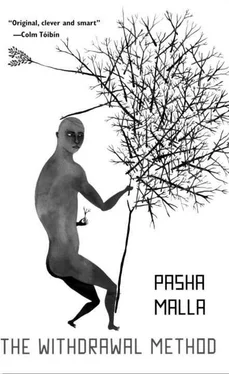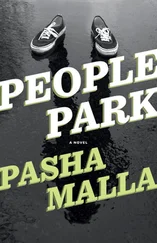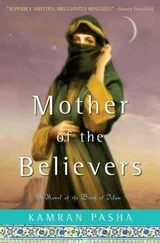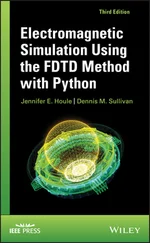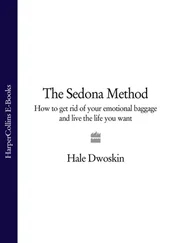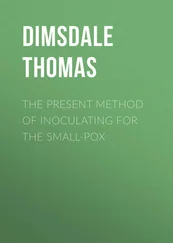"I've brought you something," Cousteau said, reaching into his satchel and producing the coral. He handed it to his friend. "The Saudis use it to make prayer beads."
Picasso nodded, turning the coral over in his hands. It was a small branch from one of the great underwater trees, brownish and knobby. Beneath the villa, the sea crashed frothing against the seawall.
"It took one of our men over an hour to saw it off." Cousteau smiled. "He came up covered in coral mucus. Two days to wash himself clean."
Picasso nodded again. He ran his thumb over the coral's rough terrain, cataloging its crevices and ridges by touch. Then, with a jerky motion, the painter tossed the coral into the air, caught it, and dropped it into the pocket of his baggy velvet trousers, where it became a vague lump in the soft fabric. Picasso raised his glass to Cousteau. "Thank you," he said, and swallowed the wine in a single gulp.
INSIDE, COUSTEAU moved from room to room admiring the art that filled the villa: paintings piled on floors, drawings pinned to walls, sculptures clumped in corners. He stopped before a sketch of Picasso's mural at the UNESCO building in Paris. In its centre was what looked like a spindly blue man, falling downwards, arms flailing over his head.
Picasso slid up beside Cousteau and placed a hand on the explorer's shoulder. Cousteau pointed to the man in the picture. "What's he meant to be doing?"
"You know," Picasso said, "art critics have written extensively about that figure. Some say it is the fall of Icarus. Others that it is Lucifer being cast from heaven."
"So?" said Cousteau, still staring at the drawing.
"Don't tell anybody, Jacques." Here Picasso leaned in closer, his mouth almost touching Cousteau's ear, the wine sweet and lemony on his breath. He whispered, "I was just trying to paint a diver."
WHEN IT WAS time for Cousteau to leave, Picasso walked with him down the stone stairs of the villa. With one arm he held the door open for Cousteau as he stepped outside onto the street. Picasso's other hand remained buried deep in the pocket of his trousers.
"Sorry to run, Pablito," said Cousteau, "but I'm playing truant from my crew."
Picasso laughed. "Back to discovering lost worlds," he said.
"And you, back to inventing new ones." Cousteau reached out to shake hands.
Picasso hastily removed his hand from his pocket. In it, a rusty, mottled husk, sat the piece of black coral. He paused for a moment, locking eyes with his friend. Then, before either could speak, Picasso slapped his hand into Cousteau's, clasping the coral between their palms. Cousteau felt it there, the sharp sting of its knobs and spines. Picasso pumped his arm vigorously, crushing the coral into Cousteau's hand. Then he pulled away.
"Take care, Jacques," Picasso said, grinning. He dropped the coral into his pocket, waved, and closed the door.
Cousteau was left standing on the street, the midday sun slicing down and carving shadows from the rooftops, the thunder of surf in the distance. His palm still stung. Turning his hand over, looking down, Cousteau saw what had been etched there: a pattern of holes and furrows and puckered wrinkles, carved deep and pink into his skin.
"The Film We Made About Dads" was first published online at sweetfancymoses.com, and subsequently in Maisonneuve magazine.
"Pushing Oceans In and Pulling Oceans Out" was first published in Prism International as "Pulling Oceans In and Pushing Oceans Out."
The postcard described in "Dizzy When You Look Down In" is real and very exciting.
"The Love Life of the Automaton Turk" could not have been written without Mark Sussman's essay, "Performing the Intelligent Machine: Deception and Enchantment in the Life of the Automaton Chess Player," published in The Drama Review and The Turk: The Life and Times of the Famous Eighteenth-Century Chess-Playing Machine by Tom Standage.
"The Past Composed" was first published in Grain and subsequently in The Journey Prize Stories 16. The art exhibit described in this story is an installation by Douglas Gordon called "30 Second Text."
"Respite" was first published in Malahat Review and subsequently in The Journey Prize Stories 18. The Fountain Group is based on Le Phare, a non-profit organization that provides respite care to families with terminally ill children in Montreal. Please donate money to them.
"When Jacques Cousteau Gave Pablo Picasso a Piece of Black Coral" was first published in Prairie Fire and borrows heavily from Cousteau's excellent book The Living Sea.
I'd like to express special gratitude to the Ontario Arts Council and the Toronto Arts Council for financial assistance.
There are many, many people who deserve credit for their various roles in helping turn a file on my computer into this book. Thanks to each and every one of you, very much, for all your help and support.


PASHA MALLA was born in St. John's, Newfoundland, grew up in London, Ontario, and now lives in Toronto, Ontario. He has written regularly for McSweeney's, has had multiple stories nominated for the Pushcart and journey prizes, and has contributed to CBC Radio's "Definitely Not the Opera." He is currently working on a novel to be published by Anansi in 2010.


